Acclaimed rapper, songwriter, and producer Min Yoongi is known to his fans under a couple of different stage names; perhaps most famously under his idol moniker, Suga, member of renowned k-pop group BTS. When pursuing solo endeavors, however, he opts to release work under the name “Agust D”- a mix of “Suga” spelled backwards, along with “DT”, the initials for Daugu Town, the artist’s home city. It’s under this name that he portrays a far darker persona to that of the idol Suga- it’s here that he doesn’t shy away from exploring heavier concepts, such as depression, capitalism, internal conflict, and the impact his own mental health and physical injuries have had on his well being and career.

It’s fair to say that since the release of his second mixtape D-2 back in May of 2020, fans of Min’s solo work have been eagerly waiting to see what else he can do- and with the release of his first full-length studio album D-Day on April 21st, the scope of his new work far exceeded anyone’s expectations. According to an announcement on Weverse from Hybe Enternatinment, this is the third and final installment in the Agust D trilogy. The album boasts several exciting features from other artist, including fellow BTS member J-Hope on the track HUH?!, as well as IU on People Pt. 2, Woosung of the band The Rose, and the late composer Ryuichi Sakamoto on the track Snooze. Let’s take a closer look at two of my favorite tracks from the 10-track album, starting with Haegeum.
Haeguem, the second track on D-Day, calls for freedom from all that binds us and keeps us passive, while remaining conscious of how we go about this. The term haegeum holds a double meaning in korean- a haegeum is a type of traditional Korean stringed instrument, however it also means to lift a ban, or allow something previously forbidden. In an interview about the track, Min said “The word haegeum came to me [because] when I was young I played rhythm games…When beating a certain stage, you would unlock a forbidden song, then you could play a new rhythm. It was ‘freedom from forbidden’. Why Don’t I break free from those things?”
Mirroring similar iconography found in a previous music video for the song Daechwita in 2020, the music video for Haegeum features Agust D facing off with and eventually killing another version of himself, a version that personifies concepts of selfishness, greed, and decadence- thus freeing himself. This fantastic excerpt from the song highlights the concepts he believes we must break free from:
“This song’s simply about freeing what’s forbidden / but you must remember to differentiate / freedom from self-indulgence…Endless influx of information prohibits / freedom of imagination, and seeks conformity of thought / now it even infringes on freedom of thought…maybe we do it to ourselves / slaves to capitalism, slaves to money / slaves to hatred and prejudice / slaves to YouTube, slaves to flexin’ / selfishness and greed have gone off the rails”

Amygdala, the fourth track on the album, details the trials that life has thrown his way, and his concern with whether he has responded to these events appropriately or not. The amygdala is the part of the brain responsible for processing traumatic stimuli, and is activated in response to feeling anger and fear. The chorus of the song shows Agust D practically begging his amygdala to help him feel something, and cope with the trauma he’s endured:
“My amygdala (my amygdala) / please save me, please save me…please let me out, please let me out…save me from here, hurry and get me out of here…”
The video portrays Agust D alone in a darkened room, struggling against himself to cross the threshold of the doorway that is mere feet in front of him, which would, we can only assume, free his mind from the paralyzed state we find him in. The video is littered with flashbacks to an incident in which he was hit by a car, subsequently saddling him with a shoulder injury that has plagued his health and ability to perform with BTS for years since. The D-Day tour’s live performances (available on DVD and Blu Ray), which follow a narrative, feature sets similar to the one seen in the Amygdala music video.
Min Yoongi is a songwriter who continually seeks to bridge the gap between his clearly conflicting desires in life, namely his deep ambition and craving for success with his detest for greed and blind adherence to capitalistic society. This is never more clear than in his music videos, in which he quite literally kills his own conflicting identities in order to finally exist as himself, singularly, in his purest form. If his lyrics and videos are any indication, he appears to have come to a conclusion on how to reconcile these differing parts of his inner world, as he raps on the album’s opening track “Future’s gonna be ok, look in the mirror and see no pain…maybe the stupid past is over now…lotus flowers bloom even in mud.”
Agust D’s D-Day is available now at Kawaii Gifts, both in store and online for $39.95. Get your hands on a copy while you can, and own a piece of this fantastic story.



![Korea Pop Store XLOV - 2nd Single [I One] Jewel Case Kawaii Gifts](http://shopkawaiigifts.com/cdn/shop/files/korea-pop-store-album-xlov-2nd-single-i-one-jewel-case-1174348136.jpg?crop=center&height=550&v=1750446338&width=500)

![Korea Pop Store NEWJEANS - 1ST EP 'NEW JEANS' [WEVERSE ALBUMS VER.] Kawaii Gifts](http://shopkawaiigifts.com/cdn/shop/products/korea-pop-store-album-newjeans-1st-ep-new-jeans-weverse-albums-ver-38671076819158.jpg?crop=center&height=550&v=1666132020&width=500)














































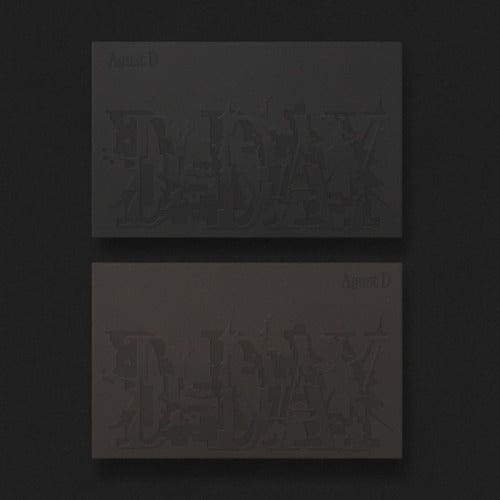
![Korea Pop Store AGUST D - D-Day [WEVERSE ALBUMS VER.] Kawaii Gifts](http://shopkawaiigifts.com/cdn/shop/files/korea-pop-store-album-agust-d-d-day-weverse-albums-ver-39565779108054.jpg?crop=center&height=500&v=1684530157&width=500)
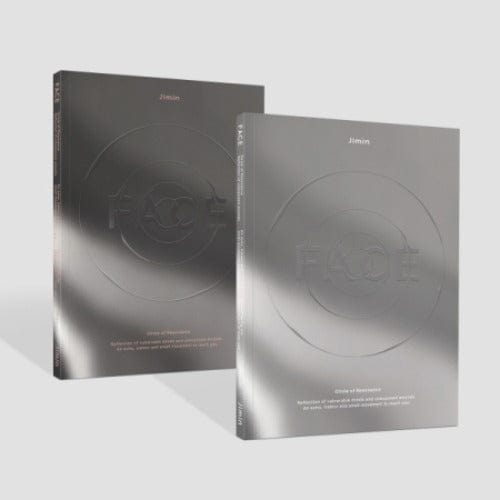
![Korea Pop Store [Weverse Benefit] RM (BTS) - Indigo (Book Edition) Kawaii Gifts](http://shopkawaiigifts.com/cdn/shop/products/korea-pop-store-album-weverse-benefit-rm-bts-indigo-book-edition-38942631166166.jpg?crop=center&height=500&v=1671240954&width=500)
![Korea Pop Store [Weverse Benefit] RM (BTS) - Indigo (Book Edition) Kawaii Gifts](http://shopkawaiigifts.com/cdn/shop/products/korea-pop-store-album-weverse-benefit-rm-bts-indigo-book-edition-38942630412502.jpg?crop=center&height=5760&v=1671240951&width=900)



